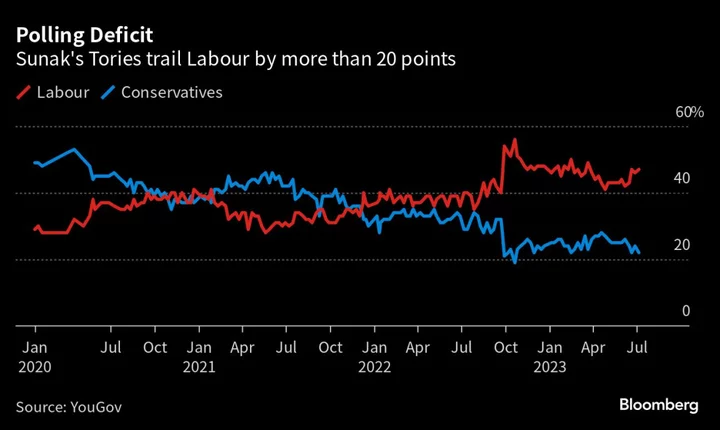By Dan Burns and Jonathan Cable
WASHINGTON/LONDON U.S. business activity ticked higher in October while output in the euro zone took a surprise turn for the worse, surveys showed on Tuesday, underscoring the diverging path for central bankers in the two regions and fanning fears the bloc may slip into recession.
In the United States, the manufacturing sector pulled out of a five-month contraction on a pickup in new orders, and services activity accelerated modestly amid signs of easing inflationary pressures.
S&P Global said its flash U.S. Composite Purchasing Managers Index tracking both the manufacturing and service sectors rose to 51.0 in October - one point above the 50 level that separates expansion and contraction - from a final September reading of 50.2.
It was the highest level since July in the latest sign the U.S. economy is withstanding the surge in interest rates spurred by the Federal Reserve's campaign to beat back inflation. Growth has persisted all year even as most economists until recently had expected the Fed's 5.25 percentage points of rate hikes since March 2022 to trigger a recession and a rise in joblessness.
Later this week the Commerce Department will offer up its scorecard of economic activity for the third quarter, with economists polled by Reuters estimating gross domestic product growth was the swiftest in nearly two years in the period from July through September. The S&P Global survey suggests that momentum has carried over into the start of the fourth quarter.
"Hopes of a soft landing for the U.S. economy will be encouraged by the improved situation seen in October," Chris Williamson, chief business economist at S&P Global Market Intelligence, said in a statement. "The S&P Global PMI survey has been among the most downbeat economic indicators in recent months, so the upturn in U.S. output growth signaled at the start of the fourth quarter is good news."
HEADACHE FOR THE ECB
In the euro zone, business activity drooped as demand fell in a broad-based downturn across the region, causing the bloc to enter the fourth quarter on the wrong foot and suggesting it may slip into recession.
HCOB's flash euro zone Composite Purchasing Managers' Index (PMI), compiled by S&P Global and seen as a good guide to overall economic health, fell to 46.5 in October from September's 47.2 and its lowest since November 2020.
Outside of the COVID-19 pandemic months it was the lowest reading since March 2013. It was well below the 50 level, and confounded expectations in a Reuters poll for an uptick to 47.4.
The survey will likely make disappointing reading for the European Central Bank, which meets on Thursday, and market pricing now suggests ECB President Christine Lagarde's 'higher-for-longer' interest rate narrative may not last as some expect.
"The flash PMIs mark a poor start to October for the euro zone, especially after showing some early signs of recovery in September," said Rory Fennessy at Oxford Economics.
"If this trend continues, this poses downside risks to our stagnant growth forecast for Q4."
Suggesting a recession is well underway in Germany, Europe's largest economy, business activity contracted there for a fourth straight month as the downturn in manufacturing was matched by a renewed decline in services, its PMI showed.
In France, the euro zone's second-largest economy, business activity remained in contraction territory in October, PMI data showed, improving just slightly from September's near three-year low.
In Britain, outside the European Union, businesses also reported another decline in activity this month, underlining the risk of recession ahead of the Bank of England's interest rate decision next week.
UNCERTAIN OUTLOOK
Back in the United States, on the much-larger services side of the economy, activity also defied forecasts for a modest slowdown as that sector's PMI came in at a three-month high of 50.9 in October versus 50.1 in September. The Reuters poll had predicted 49.8.
Service-sector cost inputs grew at their slowest pace in three years while service providers increased prices by the smallest margin since the spring of 2020 shortly after the coronavirus pandemic erupted.
"The survey's selling price gauge is now close to its pre-pandemic long-run average and consistent with headline inflation dropping close to the Fed's 2% target in the coming months, something which looks likely to be achieved without output falling into contraction," Williamson said.
Inflation has abated notably since hitting its peak rate in June 2022, but the path downward has been uneven over the past several months, and Fed officials have fretted that services price pressures were proving especially sticky.
Other recent data have shown progress on that front, with a "super core" measure of inflation - services costs excluding energy and housing - having risen in August by the least in 13 months. The Commerce Department will report the figure for September on Friday.
By contrast, the PMI covering the euro zone's dominant services industry sank to a 32-month low of 47.8 from 48.7, below all forecasts in the Reuters poll which had predicted no change from September.
And in a nod to the fragile nature of the world economy, World Bank President Ajay Banga said on Tuesday that geopolitical tensions present a downside risk to growth and upside risk to inflation.
There are fears Israel's military campaign in Gaza following a deadly attack by Palestinian militant group Hamas on Oct. 7 may escalate to a regional conflict and Russia's invasion of Ukraine is ongoing.
(Reporting by Dan Burns and Jonathan Cable; writing by Lindsay Dunsmuir; Editing by Andrea Ricci)









